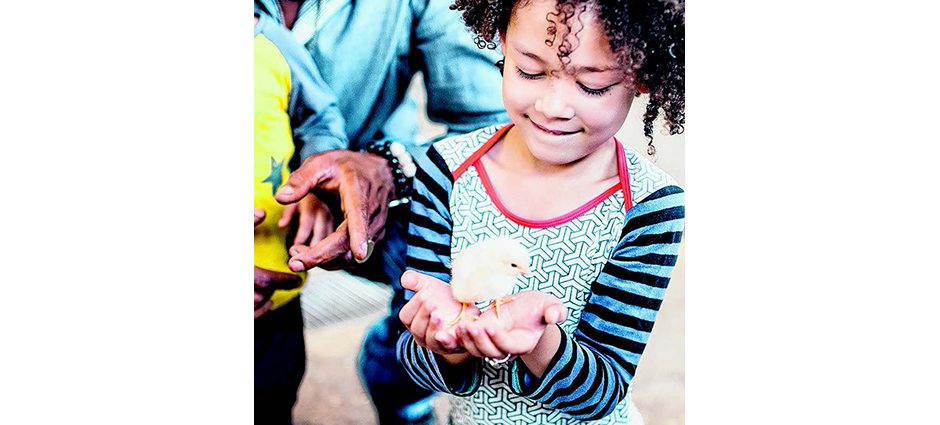
Those baby chicks at the county fair or petting zoo may be cute, but do their fuzzy little bodies contain illnesses that can harm humans?
Pets and farm and zoo animals are a source of joy for young and old alike, but, if you’re not careful, they can also make you sick. From 2010-2015, the Centers for Disease Control and Prevention (CDC) reported about 100 outbreaks of illness in people linked to animals in public settings like zoos, fairs, aquariums, and educational farms.
To minimize exposure to illness-causing bacteria such as E. coli in these settings, children and adults should wash their hands right after touching animals or anything in the areas where animals live, roam, or eat. Running water and soap are best but, if they are not available, use an alcohol-based hand sanitizer that contains at least 60 percent alcohol and then wash your hands with soap and running water at the next opportunity.
Companion animals can also carry germs that cause diarrhea, rashes, fevers or other illnesses in humans. Experts say the chances of a healthy person being infected by a domesticated dog, cat or bird are small – but it’s safe to get the recommended vaccinations for your pet, keep kids away from their litter, and wash hands thoroughly after being in contact with pets.
Persons at higher risk include children below age five; persons with HIV+/AIDS; organ transplant recipients; pregnant women; and people being treated for cancer. Your physician can advise on what precautions to take.
As America’s sprawling population intrudes more on wilderness areas, there is an increasing number of diseases that spread from animals to humans. A menagerie of flying, walking, crawling, and swimming animals from bats to opossums can transmit a wide variety of diseases, including anthrax, bird flu, the plague, rabies, salmonella and a range of fevers.
To avoid diseases carried by ticks and mosquitoes, use insect repellent when outdoors and do a tick check after. To minimize interactions with mice, raccoons and other wild mammals, don’t leave food outside the house and keep the foundation sealed and free of brush and debris.
Finally, let wild animals be wild. Many human rabies exposures happen when people are trying to help ‘orphan’ or baby wildlife. Call a licensed wildlife rehabilitator instead.
For more information on healthy interactions with animals at home, in public, and in the wild, visit the Centers for Disease Control and Prevention at https://www.cdc.gov/healthypets/ and the NYS Department of Health at http://www.dec.ny.gov/animals/261.html.





